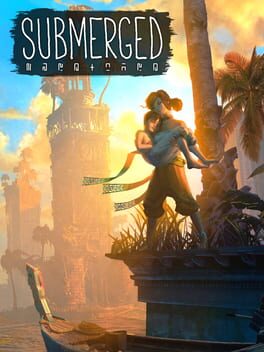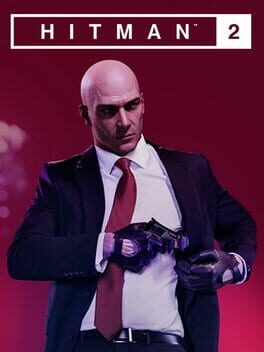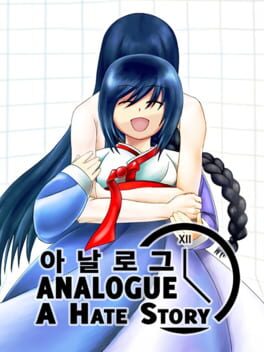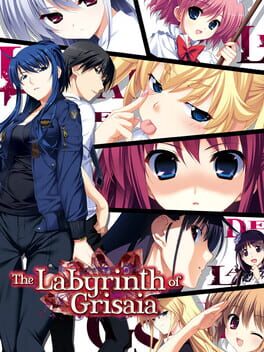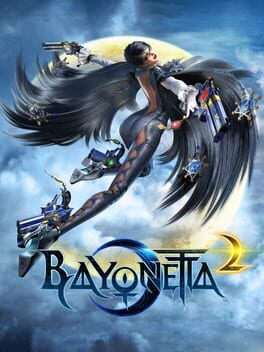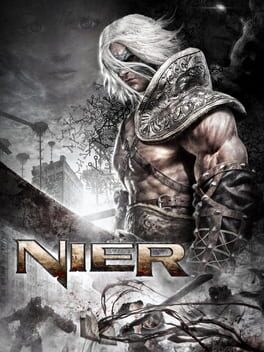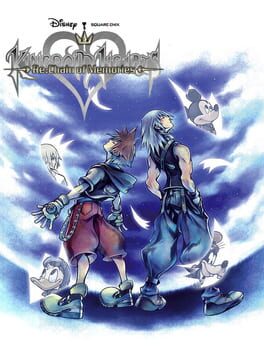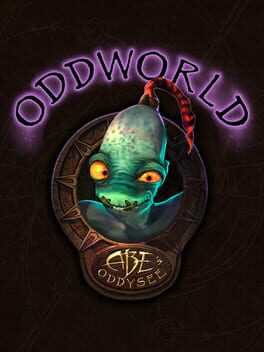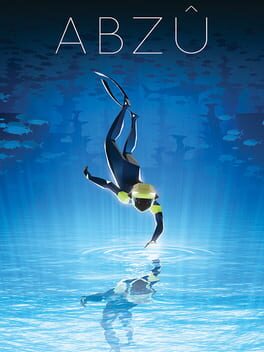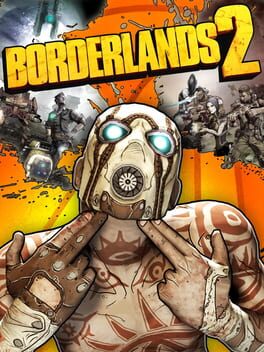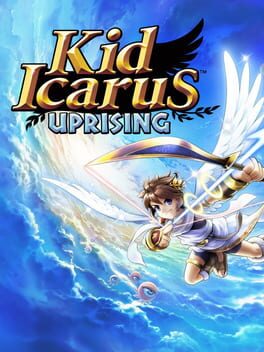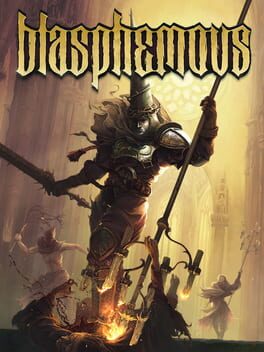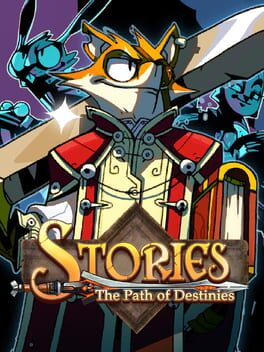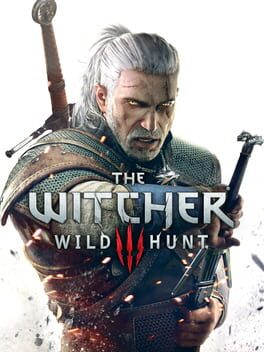LunaEndlessWitch
2015
I'm not really certain on what occasion someone had the bright idea to say, "Hey I just want to make ICO, without any of the charm or interesting themes built around it, stretched out with inoffensive climbing and collectibles to pad out it further with a meaningless story, wrapped in a very disgustingly muddled aesthetic," but someone did. That's the most charitable way I can put this, a rip-off is probably better worded and more apt. (2/10)
2018
Hitman 2 is a stealth game dead set more on planning out routes through its intricate spectacularly structured level design rather than depth in execution. Which works to its benefit most of the time, it's wrapped in a very goofy-serious aesthetic where guards are easily distracted and targets can be killed in satisfying and very grandiose ways. Levels like Paris and Hokkaido, to Miami and Mumbai, are all excellently done. The big issue primarily is that in general you are playing 3D pathing and nothing else, your options for stealth are limited to either distractions or disguises and playing stop/go with the lights/guards. In that way it's not very engaging for me, although it does pay off whenever I route perfectly with stealth suit only to get to my target. But challenge runs that use that pathing to its extreme is really all that I found myself squeezing out here unfortunately. That being said, if excellent planning is all you need, Hitman 2 provides a large canvas for you to dynamically take down a huge series of targets. (7.5/10)
It's a very short venture, but Analogue: A Hate Story is a pretty good dive into cultural abuse and societal issues around patriarchy. In those ways it's excellent in terms of brutally describing the situation where a fish-out-of-water is thrown into a disgusting cage that ebbs away her freedom. It also juggles a couple themes regarding hate and understanding each other, although not nearly as fleshed out. Which is really my only endemic issue, it's a bit too simple. Both characters have motivations and opinions on the subject but neither is really fleshed out personality wise, it's very safe.
Even still, I do recommend Analogue: A Hate Story as a nice quick read.
Even still, I do recommend Analogue: A Hate Story as a nice quick read.
Coming off of a VN that hosted incredible characterization and ridiculously good writing with each route ending on a very satisfactory note is a pretty tough challenge. Somehow Front Wing managed to do that so gracefully it was genuinely surprising to me every time, even though it hit a couple snags.
The biggest strength Labyrinth of Grisaia offers is in each of its "After" routes taking place after each route for the titular Grisaia characters. This strength is powerfully written romance, offering genuine continuations of each character's lesson and selling each relationship as one that's believable and heartfelt. Every single emotional scene lands on all cylinders and carries a strong message to come home with. A lot of it will personally come back in my head as I think about my own current relationship. From Sachi and Yuuji's relationship issue, that being that their goals in said relationship works against each other, to Michiru's internal fight at attempting a date to be affectionate towards the person she loves, it's all written and structured incredibly well. The general writing prose hasn't taken a hit either, dialogue between characters and how events play out is still done fantastically.
It's not all bangers though, a couple routes spring to mind at being either unnecessary or straight up bad. Yuuji's Past, the route that seems to be the most advertised, is actually probably the worst offender. I didn't enjoy it the least, but everything about it covers very little and ends up as incredible filler. And I really mean filler, there's an entire 1/3 of it that didn't need to exist, some of it serving no purpose but to be sequel bait for Eden of Grisaia. Amane's After route was also very bland, probably because Front Wing wrote themselves off there as Amane's Fruit of Grisaia route left no stone unturned.
Despite these couple issues, I recommend getting Labyrinth of Grisaia if you're looking for incredibly competent romance storytelling. Of course, you have to play Fruit of Grisaia first which is fine because Fruit of is still better.
The biggest strength Labyrinth of Grisaia offers is in each of its "After" routes taking place after each route for the titular Grisaia characters. This strength is powerfully written romance, offering genuine continuations of each character's lesson and selling each relationship as one that's believable and heartfelt. Every single emotional scene lands on all cylinders and carries a strong message to come home with. A lot of it will personally come back in my head as I think about my own current relationship. From Sachi and Yuuji's relationship issue, that being that their goals in said relationship works against each other, to Michiru's internal fight at attempting a date to be affectionate towards the person she loves, it's all written and structured incredibly well. The general writing prose hasn't taken a hit either, dialogue between characters and how events play out is still done fantastically.
It's not all bangers though, a couple routes spring to mind at being either unnecessary or straight up bad. Yuuji's Past, the route that seems to be the most advertised, is actually probably the worst offender. I didn't enjoy it the least, but everything about it covers very little and ends up as incredible filler. And I really mean filler, there's an entire 1/3 of it that didn't need to exist, some of it serving no purpose but to be sequel bait for Eden of Grisaia. Amane's After route was also very bland, probably because Front Wing wrote themselves off there as Amane's Fruit of Grisaia route left no stone unturned.
Despite these couple issues, I recommend getting Labyrinth of Grisaia if you're looking for incredibly competent romance storytelling. Of course, you have to play Fruit of Grisaia first which is fine because Fruit of is still better.
2014
Weirdest conclusion I came to is that this should've been a cinematic platformer.
No seriously, it's not like this game's good at anything else. They ripped every ounce of legitimate depth the mechanics have, offset's gone, mashing is the name of the game, enemies are missing a lot of telegraphs and the enemy design in general is piss-poor. The pacing is off, the developers who care about the gameplay are gone, the boss design is clearly set for cinematics and nothing else because your toolset is always incredibly limited and not interesting to fight. What do you have left?
The aesthetics are wonderful, the music is killer, the platforming is actually not too shabby thanks to stuff like After Burner and Witch Twist. I feel giddy whenever a cinematic lets me do the BEEG climax button thing and mash an angel or devil into a nice fine pulp. In fact a lot of the cinematic timing is on point, when the clearly underbaked story isn't rearing its head.
It's a shame to see, I quite liked Bayonetta 1.
No seriously, it's not like this game's good at anything else. They ripped every ounce of legitimate depth the mechanics have, offset's gone, mashing is the name of the game, enemies are missing a lot of telegraphs and the enemy design in general is piss-poor. The pacing is off, the developers who care about the gameplay are gone, the boss design is clearly set for cinematics and nothing else because your toolset is always incredibly limited and not interesting to fight. What do you have left?
The aesthetics are wonderful, the music is killer, the platforming is actually not too shabby thanks to stuff like After Burner and Witch Twist. I feel giddy whenever a cinematic lets me do the BEEG climax button thing and mash an angel or devil into a nice fine pulp. In fact a lot of the cinematic timing is on point, when the clearly underbaked story isn't rearing its head.
It's a shame to see, I quite liked Bayonetta 1.
2010
Yoko Taro is somewhat of a narrative genius in terms of crafting concepts together and creating strong well done storytelling that actively reflects the themes here of humanity and perspective. It's something I think Automata does better, but what's here is actually still excellent. It's terribly paced, the entirety of Ending B/C routes is awful to do, even with its new perspectives. But it's genuinely good, scenes like the text adventure in the silent woods details how fantastic Yoko Taro is as a writer.
The gameplay on the flip end, is mostly awful, and that's mostly due to the limitations the game's thematic messaging entails (the enemy designs are forced to be simple and get more complex much later to reflect the rebuilding of the shadows' own humanity) and also due to Yoko Taro being considerably awful as a game designer to make something engaging. There IS actually depth to NieR's mechanics, but the kinesthetics of every single hit you do is so criminally awful that the only reason I don't say it's the worst kinesthetics of a game ever is because Drakengard exists and he made that too. Combine bad game feel with a series of repetitive encounters, a pacing that overstays its welcome, and having to do the game at least halfway through three times and you get a disgusting experience. The saving grace to its combat is genuinely well designed boss fights, which do a great job of creating challenging bullet hell waves you have to have key understanding of spacing to get through unscathed.
It's worth suffering through, though. There's so much good here tied to its thematics and narrative storytelling that I don't regret playing it. It's just the activity of PLAYING it in general is so decrepit.
The gameplay on the flip end, is mostly awful, and that's mostly due to the limitations the game's thematic messaging entails (the enemy designs are forced to be simple and get more complex much later to reflect the rebuilding of the shadows' own humanity) and also due to Yoko Taro being considerably awful as a game designer to make something engaging. There IS actually depth to NieR's mechanics, but the kinesthetics of every single hit you do is so criminally awful that the only reason I don't say it's the worst kinesthetics of a game ever is because Drakengard exists and he made that too. Combine bad game feel with a series of repetitive encounters, a pacing that overstays its welcome, and having to do the game at least halfway through three times and you get a disgusting experience. The saving grace to its combat is genuinely well designed boss fights, which do a great job of creating challenging bullet hell waves you have to have key understanding of spacing to get through unscathed.
It's worth suffering through, though. There's so much good here tied to its thematics and narrative storytelling that I don't regret playing it. It's just the activity of PLAYING it in general is so decrepit.
Despite his terrible concept of pacing, I honestly really enjoy Nomura stories for how it juggles concepts, especially relating to this one. It's a very interesting story surrounding memory this time around, leading to quite a few emotional moments that left me satisfied. It also still holds a lot of that KH charm, as well as some boss fights that are a bit interesting on their own.
That being said that's where the praise stops, the gameplay here is NOT good. In fact I'd say it's anything other than that. Other than the basic enjoyment of deckbuilding, the combat here is some very weak idea of spacing, then spamming either your broken deck setup (because ReChain has awful card balance), or just any set of attacks and you'll be fine either way. It's not even visually pleasant to fight which is something the series tends to be good at in spite of the lack of depth in most of its areas. The Riku story side does offer a neat twist in that the decks are prebuilt so the balance is fine tuned, but without the enjoyment of creating your own deck it's actually worse for it because Riku's decks are not fun to play around with either, other than the initial fight with each deck understanding where the card combos are.
It probably hurts that I tried out Slay the Spire this year and it makes this game a pile of trash. (4.5/10)
That being said that's where the praise stops, the gameplay here is NOT good. In fact I'd say it's anything other than that. Other than the basic enjoyment of deckbuilding, the combat here is some very weak idea of spacing, then spamming either your broken deck setup (because ReChain has awful card balance), or just any set of attacks and you'll be fine either way. It's not even visually pleasant to fight which is something the series tends to be good at in spite of the lack of depth in most of its areas. The Riku story side does offer a neat twist in that the decks are prebuilt so the balance is fine tuned, but without the enjoyment of creating your own deck it's actually worse for it because Riku's decks are not fun to play around with either, other than the initial fight with each deck understanding where the card combos are.
It probably hurts that I tried out Slay the Spire this year and it makes this game a pile of trash. (4.5/10)
I love me my anti-capitalist breakdowns especially with an aesthetic this strong and a core puzzle idea so intertwined with said aesthetic that it itself requires large amounts of praise, but this puzzler in many ways underwhelmed me. A lot of it to me, is due to the difficulty or to be more clear, how obtuse solutions can be at times. And at the same time, the puzzles also become pathetically easy past the halfway point. I found myself more often than not going through the motions. I was certainly in the zone a lot of the time, it's incredibly competent even with the large amount of cracks in the seams that irk me, but any recommendation I can do of it comes with hesitation.
It's a competent goodish puzzler that mostly holds up due to incredible story meets gameplay systems, and I can recommend it just on that.
It's a competent goodish puzzler that mostly holds up due to incredible story meets gameplay systems, and I can recommend it just on that.
2016
Transcendental experiences are hard to fully capture by any medium, I find. It's not exactly an art that one can easily do, even when they have the right ideas in place. In that regard, I found ABZU to be pretty ok all things considered. It's beautiful for sure, soundtrack is pleasant, the sights and sounds certainly engage me for about an hour. But, maybe due to the limits this kind of shot in the dark is, or just due to my tastes alone, I was the opposite of 'gripped' past an hour in and all the way to the end of the game.
Even still, I certainly can say that if you think the concept of a beautiful underwater sim captivates you for quite a while, then there's no harm in picking ABZU up. I for one felt a very middling amount of enjoyment in this venture.
Even still, I certainly can say that if you think the concept of a beautiful underwater sim captivates you for quite a while, then there's no harm in picking ABZU up. I for one felt a very middling amount of enjoyment in this venture.
2012
I can't in any good faith really call this a bad game. It's certainly not a GOOD game. There's a lot of heart and soul put into the nooks and crannies, from Handsome Jack's great delivery, some of the interesting build variety choices, some of the speedtech, some really good abilities, some fun satisfying moments with the gunplay.
But like, on top of all of that is a whole fat load of garbage. There's a ridiculous amount of grind, a shitton of terrible writing, a whole lot of fluff and fucking about. I don't understand WHY it's a loot shooter, it doesn't really ever meet that goal of being one. I'm not really a big fan of diablo but there was more concise design choices for why that game is loot-ran, where loot here is a lot of fluff shit.
There's a good FPS here, it's just under a whole lot of gearbox shit. I do fully understand the appeal of why people play this game as much as they do, in fact in some ways the co-op play of it is recommendable on its own in the way most co-op anything is, but even still I can't in any faith keep playing this game past a few hours because it just numbs my mind. I don't think I'm ever really going to grasp the full appeal of this, but I guess I should be glad that people find fun in this game because there's never anything wrong with that.
But like, on top of all of that is a whole fat load of garbage. There's a ridiculous amount of grind, a shitton of terrible writing, a whole lot of fluff and fucking about. I don't understand WHY it's a loot shooter, it doesn't really ever meet that goal of being one. I'm not really a big fan of diablo but there was more concise design choices for why that game is loot-ran, where loot here is a lot of fluff shit.
There's a good FPS here, it's just under a whole lot of gearbox shit. I do fully understand the appeal of why people play this game as much as they do, in fact in some ways the co-op play of it is recommendable on its own in the way most co-op anything is, but even still I can't in any faith keep playing this game past a few hours because it just numbs my mind. I don't think I'm ever really going to grasp the full appeal of this, but I guess I should be glad that people find fun in this game because there's never anything wrong with that.
2012
Sakurai really fucking knocked this one out of the park. It's crazy that this game is really this good and flew so under the radar. This absolute brainchild is an excellent combination of TPS and Rail Shooter and manages to do both mixes extraordinarily well. Featuring some excellent enemy design that never falters and solid rail levels that really push the stylus-point combat well, all wrapped up in a excellently written package due in no small part to the wonderful voice cast who perform so well here, creating a rather elegant package that is exemplified by the beautiful aesthetic and music it runs with.
It's not perfect of course, there's quite a few level parts that felt disgustingly brutal as a difficulty spike, and the system for health could've been made a lot more interesting. But even still, the completely in-your-hands difficulty setting and great replayability mitigates these issues. For something that isn't entirely 'my thing' in terms of how combat works (the arena combat doesn't really satisfy me in ways I assume will satisfy most others, and that's very much a main appeal) I can't recommend it enough.
It's not perfect of course, there's quite a few level parts that felt disgustingly brutal as a difficulty spike, and the system for health could've been made a lot more interesting. But even still, the completely in-your-hands difficulty setting and great replayability mitigates these issues. For something that isn't entirely 'my thing' in terms of how combat works (the arena combat doesn't really satisfy me in ways I assume will satisfy most others, and that's very much a main appeal) I can't recommend it enough.
2019
When you riff off of something in design philosophies according to gameplay and themes it's really important that one actually hold true to that foundation and/or offer something actually unique. Salt & Sanctuary understood 2d spacing and level design when it came to a slow methodical action platformer. Blasphemous seems intent on knowing nothing at all.
What's the point of having a disgustingly powerful parry and dodge when the enemies have ridiculously slow attacks and are placed in such easy not very interesting locations? What even is enemy placement here? What's the point of making platforming punishing for failure when the platforming isn't interesting? Why copy the structure of ringing the bells at all?
I had to ask myself these questions while I played a lot as I searched for an answer on why I was playing this game at all other than the indie buzz that barely caught my ear. (4.5/10)
What's the point of having a disgustingly powerful parry and dodge when the enemies have ridiculously slow attacks and are placed in such easy not very interesting locations? What even is enemy placement here? What's the point of making platforming punishing for failure when the platforming isn't interesting? Why copy the structure of ringing the bells at all?
I had to ask myself these questions while I played a lot as I searched for an answer on why I was playing this game at all other than the indie buzz that barely caught my ear. (4.5/10)
It's an ARPG with Arkham counters and piss easy enemies. It's surrounded by subpar fantasy story writing and "twists" to attempt to spice up the fact that you'll be replaying the same game but even easier with barely anything added to it. It's such a bog standard top down action game that I was really taken aback by its asking price afterward. The aesthetic is a very unreal engine terrain swap, the music is forgettable.
I'd probably give the game more shit than this but it had the heart in a good concept just so badly executed. Don't play this game. Go play Bastion it's WAY better.
I'd probably give the game more shit than this but it had the heart in a good concept just so badly executed. Don't play this game. Go play Bastion it's WAY better.
Let it be on record that CD Projekt Red is a master at worldbuilding and narrative prose, which oozes out of every nook and cranny from White Orchard to Toussaint. That said they are probably too tied to the craft of making a genuine true-to-Geralt game that they intentionally cut down design decisions that would actually make the gameplay good.
Narratively, Witcher 3 stands atop very well if not completely amazing. The first Act of the story is decently well paced although the bits before Velen were uninteresting save for some bits of the fanservice to bookreaders that wasn't really enough to tide me over, but overall it's remarkably well written from the quest-tied sidequests to the entire arcs relegated to Novigrad and Skellige. The second Act is phenomenal, with one particular quest that is probably my favorite of the game because it also ties in the gameplay decently too. The third act however is a crock of utter shit and it's clear that the finale was a rushed first draft which is a real shame. But despite this, the cavalcade of great well fleshed out characters and remarkably well done prose left me more than satisfied upon finishing.
Gameplay wise, other than the strong world and map design it falls completely on its face. Combat ranges from Quen to win to potion knowledge tests that are not interesting to concoct or plan around. There are a few exceptions but generally the combat is so restrictive and asinine to pull off and especially with how often you do it that it brings the whole game down terribly. A major sticking point I'll throw as evidence against it is that you have no freedom over which animation Geralt uses when attacking any enemy. It's a clear attempt to make Geralt play out his movements in the book but because you're so restricted to any random particular animation you get near enemies, combat on higher difficulties requires you to play so utterly safe and in such an uninteresting way and on lower difficulties is not satisfying at all as it becomes pure mashing. There's no sweet spot to be had here.
A couple bullet points of the DLC to add onto this before concluding:
Hearts of Stone has the best narrative storytelling especially with the quest within the world of the painting. It also has combat encounters that require a bit more thinking and leaves this DLC particularly in a fantastic corner.
Blood and Wine is 2 parts fantastic characterization and worldbuilding and one part a garbage final act that ends up actually worse than TW3 base's final act. It's still phenomenal overall due to the highs it gets to but what an absolute disappointment in the end.
Overall I find Witcher 3 to be a very good game, and I hope CD Projekt Red learns from their mistakes with Cyberpunk to actually make the gameplay part good instead of just their writing team.
Narratively, Witcher 3 stands atop very well if not completely amazing. The first Act of the story is decently well paced although the bits before Velen were uninteresting save for some bits of the fanservice to bookreaders that wasn't really enough to tide me over, but overall it's remarkably well written from the quest-tied sidequests to the entire arcs relegated to Novigrad and Skellige. The second Act is phenomenal, with one particular quest that is probably my favorite of the game because it also ties in the gameplay decently too. The third act however is a crock of utter shit and it's clear that the finale was a rushed first draft which is a real shame. But despite this, the cavalcade of great well fleshed out characters and remarkably well done prose left me more than satisfied upon finishing.
Gameplay wise, other than the strong world and map design it falls completely on its face. Combat ranges from Quen to win to potion knowledge tests that are not interesting to concoct or plan around. There are a few exceptions but generally the combat is so restrictive and asinine to pull off and especially with how often you do it that it brings the whole game down terribly. A major sticking point I'll throw as evidence against it is that you have no freedom over which animation Geralt uses when attacking any enemy. It's a clear attempt to make Geralt play out his movements in the book but because you're so restricted to any random particular animation you get near enemies, combat on higher difficulties requires you to play so utterly safe and in such an uninteresting way and on lower difficulties is not satisfying at all as it becomes pure mashing. There's no sweet spot to be had here.
A couple bullet points of the DLC to add onto this before concluding:
Hearts of Stone has the best narrative storytelling especially with the quest within the world of the painting. It also has combat encounters that require a bit more thinking and leaves this DLC particularly in a fantastic corner.
Blood and Wine is 2 parts fantastic characterization and worldbuilding and one part a garbage final act that ends up actually worse than TW3 base's final act. It's still phenomenal overall due to the highs it gets to but what an absolute disappointment in the end.
Overall I find Witcher 3 to be a very good game, and I hope CD Projekt Red learns from their mistakes with Cyberpunk to actually make the gameplay part good instead of just their writing team.
Breath of the Wild is probably the best rendition of nonlinear exploration in a 3D world I've had the benefit of playing so far, maybe even some of the best exploration structure and design in general. The way it encourages freeform make-your-own-story gameplay through its map design and incredibly deep Sheikah Slate systems that are arguably the best mechanical component of any Zelda game to date is something to be praised to hell and back. However that being said, it's still an incredibly messy game most likely due to how it had to re-contextualize a bunch of series staples into the massive freedom this game entails. The internet has really already summarized the base issues, but for clarity's sake I'll put my spin on each of them
Endurance for weapons is a great incentive for on-the-fly decisionmaking but ends up meaning very little after about 20 hours in
Shrines are a fantastic way to divy out rigid zelda puzzle design but just like rigid zelda puzzle design are still mostly fairly simple and uninteresting
Divine Beasts are great dungeons in terms of structure with their forced consideration on the player to think of the whole dungeon in a 3d space but are incredibly easy to solve even by brute force
It's surprisingly difficult in the beginning but has a huge reverse difficulty curve the more you explore, but at the very least this component is customizable depending on where you go.
With that out of the way, the physics system and exploration more than makes up for these pitfalls for a truly strong open world experience that will probably not be matched by a mainstream way for many years.
Endurance for weapons is a great incentive for on-the-fly decisionmaking but ends up meaning very little after about 20 hours in
Shrines are a fantastic way to divy out rigid zelda puzzle design but just like rigid zelda puzzle design are still mostly fairly simple and uninteresting
Divine Beasts are great dungeons in terms of structure with their forced consideration on the player to think of the whole dungeon in a 3d space but are incredibly easy to solve even by brute force
It's surprisingly difficult in the beginning but has a huge reverse difficulty curve the more you explore, but at the very least this component is customizable depending on where you go.
With that out of the way, the physics system and exploration more than makes up for these pitfalls for a truly strong open world experience that will probably not be matched by a mainstream way for many years.
